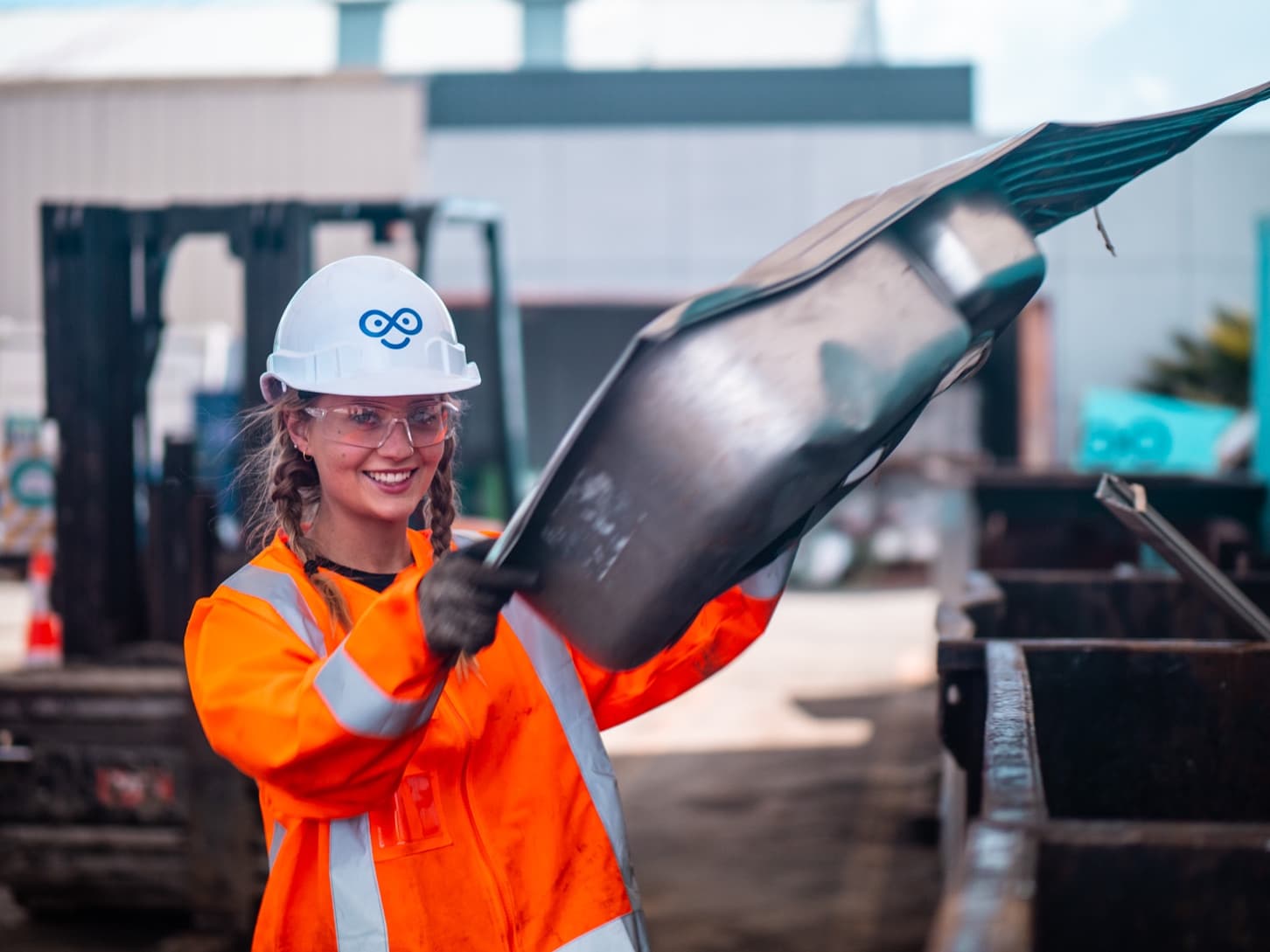You might be wondering to yourself, how is metal recycled? Recycling scrap metal is not super glamorous. Nor is it something every Joe Bloggs knows much about, and fair enough—it is a niche industry! When creating a circular lifecycle for anything, we need to go back to the basics drilled into us even as young children: Reduce, Reuse, and Recycle.
New Zealand has made a good start on recycling in general, having dedicated curb side pick-ups for recyclables and working to ensure that—as much as possible—household recyclables do not end up in landfills. But this effort is just that—a start. There is still an enormous quantity of recyclable materials ending up in tips. Because a lot of what we recycle is still dirty or contaminated, it is not in an appropriate state to reuse.
The same (arguably even more so) is true for metal recycling. Very few people would even know where to start when recycling metals or what happens to that metal once it is recycled. So, how is metal recycled, and why is it so important in the first place? We have put together a simple step-by-step process here to help you understand how to scrap metal and what happens with that metal once it has been scrapped.
How do I scrap metal?
So, you have scrap metal, and you want it gone. Fair enough, but don’t chuck it in the rubbish; bring it to us!
We have plenty of blog posts on how to scrap individual types of metal, but we’ll give you a quick overview here, too.
Start by separating your metals into ferrous and nonferrous. You can do this by using a magnet to see which is which; a magnet will stick to ferrous metal because it contains iron. Separating the two types will bring you more cash as it saves us a job and means the value of your piles will be more than just a mishmash of all types of metal.
The types of household items we accept include:
- Whiteware – washing machines, dryers, dishwashers, fridges, freezers etc.
- Stoves/ovens
- Appliances – toasters, microwaves etc.
- Heat pumps/aircons
- Hot water cylinders
- Transformers and electrical cable
- Radiators
- Taps/faucets
- Electrical wiring
- Aluminium frames
- Roofing iron
- Copper pipes
- Stainless sinks
- Car batteries
- Steel baths
- Gym Equipment
- Filing cabinets
- Pots and pans
How is metal recycled?
Metal recycling is a circular practice. We want to reuse as much metal as possible to reduce the amount that must be manufactured from scratch and thus, have as little an impact on the environment as possible by mining raw ore and creating new metal.
It all begins with the consumer (yourself) and finishes with someone else getting a new metal product of some shape or form at the other end.
- It begins with pick-up/drop-off – you help us get the metal scrap to our yard and we pay you for it.
- The metal is sorted – We sort the metal at our end to remove any plastic and non-metallic parts, then sort it again into ferrous and nonferrous. Finally, it’s sorted further by cleanliness and purity to a certain grade and made ready for processing.
- The metal is processed in our machines – We use automated machinery or even hand tools to cut any large pieces of metal down to a size appropriate for our machines to handle. Then it is compacted and crushed in balers into small cubes or, you might have guessed it, bales. That way it takes up less space and can be more easily transported.
- The metal is sent to be melted – We pack all the metal we have processed into containers and send it overseas to be melted in furnaces and reduced to its original form. This means companies won’t need to mine for new metals, and thus the circular model continues. The best part about metal is that it doesn’t lose any properties when recycled, meaning it can be continuously recycled.
- The metal is purified and solidified – Once melted, it is purified to remove contaminants. Chemicals are then added to create the desired properties, and the metal solidifies in cooling chambers for reuse.
Why do we need to recycle more metal?
Obviously, the main incentive here for recycling is to reduce our impact on the environment. We should not be mining for new metal when abundant recyclable materials around the planet are available for reuse. It is crucial that we sell back as much scrap metal as possible so it can enter the cycle. The more we mine, the faster the planet’s stores of ore run out.
There is also a strong financial element to metal recycling, where everyone can benefit, from your everyday person to scrap dealers, metal recyclers, and processing plants. Recycling also keeps expenses low for manufacturing companies as it costs less to use recycled materials.
It also keeps toxic materials and chemicals from certain metals from ending up in landfills and polluting the ground and water. That is why it is so important to recycle your waste scrap metal!
Get in touch with the team at Endless
If you have metal scrap you want to enquire about, you can get in touch with us from Monday to Friday between 7 am to 5 pm, and on Saturdays between 7 am to 1 pm. Our friendly team would love to hear from you. Check out our scrap metal prices online, and feel free to send us an enquiry to discover what your steel treasures could be worth.
